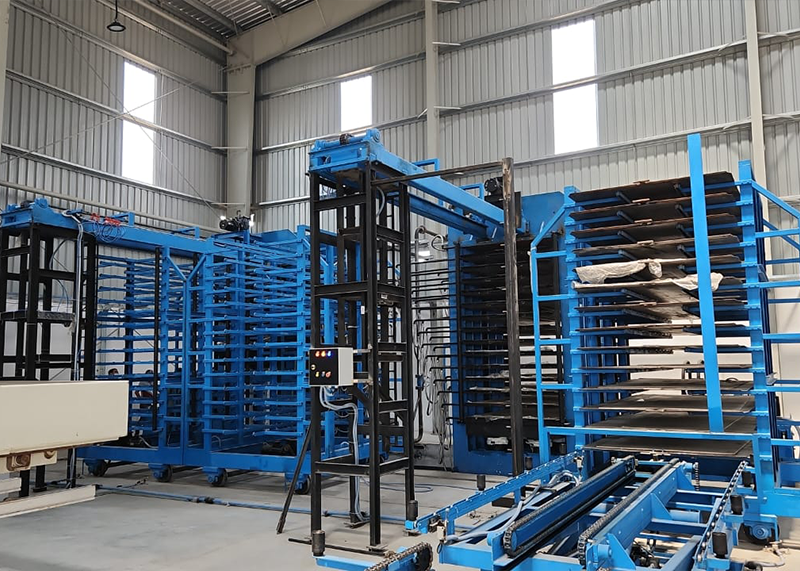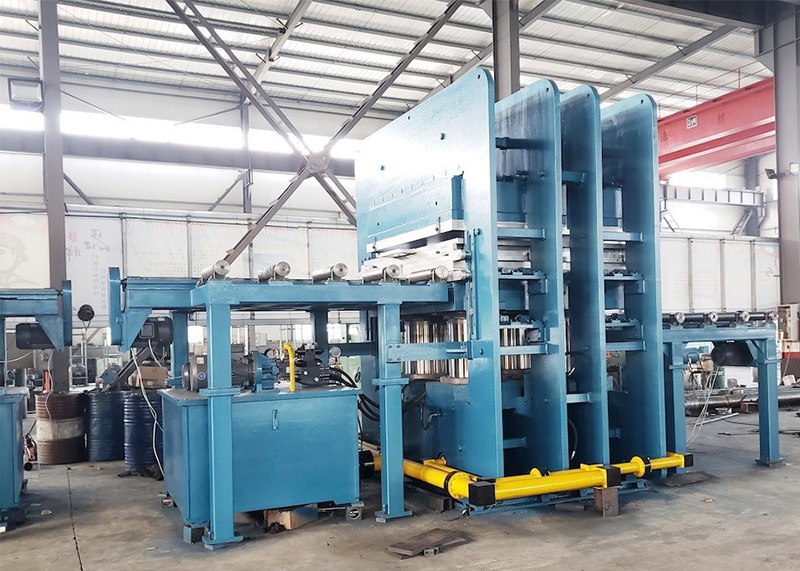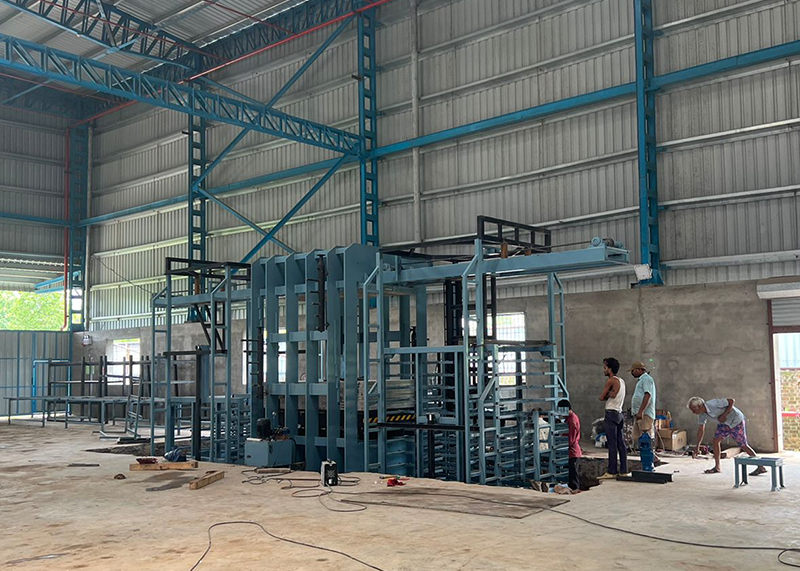Hydraulic Press for Waste Recycling Plastic Sheet
High-Performance Pressing Solutions for Fiberglass Manufacturing
Plastic waste has emerged as one of the most pressing environmental concerns, particularly in industries such as paper mills, which generate significant amounts of residual plastic waste. In response to this challenge, Makewell Industries introduces its Plastic Waste Recycling Plant, designed to help paper mills and other industries efficiently convert plastic waste into innovative and sustainable products. Our plant is equipped with cutting-edge technology to ensure optimal recycling efficiency,
transforming plastic waste into useful materials while contributing to environmental sustainability.
Process of Recycling
-
Sorting of Plastic Waste
- The first step involves sorting the plastic waste to separate different types of plastics for more effective processing.
-
Feeding into Shredding Machine
- The sorted plastic waste is fed into a shredding machine, where it is broken down into smaller, manageable pieces.
-
Shredding of Plastic Waste
- The waste is shredded into fine particles, ensuring uniformity and ease of further processing.
-
Washing of Shredded Plastic Waste
- The shredded plastic undergoes a thorough washing process to remove impurities, contaminants, and unwanted materials.
-
Removal of Waste During Washing
- During the washing process, any foreign waste is carefully removed, ensuring that only pure plastic is retained.
-
Dewatering
- After washing, the shredded plastic is subjected to a dewatering process, ensuring that excess moisture is removed.
-
Drying, Conveying, and Storage
- The dewatered plastic is then dried using a conveying system, after which it is stored for further processing.
-
Preparation on Assembly Table
- The dried plastic is prepared on an assembly table for the next phase of the process.
-
Loading and Pressing of Mat
- The material is then loaded onto a lifting table, where it undergoes pressing to form compact mats.
-
Unloading Lifting Table from the Pressing Machine
- Once the pressing is complete, the mats are unloaded from the machine, ready for the next stage of production.
-
Formation of Corrugation Sheet
- The mats are then transformed into corrugated sheets, suitable for a variety of applications.
-
Size Cutting and Stacking
- Finally, the corrugated sheets are cut to the desired size and stacked for easy transportation and use.
Advantages of the Recycled Sheets
- Durability:The recycled sheets are more durable than traditional cement sheets, ensuring long-lasting performance.
- Temperature Regulation:The ambient temperature under these roofing sheets is 5°C lower compared to asbestos roofing sheets, offering better cooling for spaces
- Versatility:These sheets can be used in a variety of applications, including partitions and decorative effects, enhancing the aesthetic appeal of your space
- Applications:Ideal for factory shades, small huts, and site offices, making them a cost-effective solution for temporary or permanent structures
- Anti-Fungal: The sheets are anti-fungal, offering protection against mold and mildew, making them a safe option for various environments
- Lightweight and Easy to Handle: These sheets are lightweight, making them easy to transport, handle, and install.
- Cost-Effective: The use of tight steel structures with these sheets results in significant cost savings.
- Aesthetic Appeal: The multi-color/greenish effect of the sheets adds an aesthetic appeal, making them suitable for a range of environments. Moreover, they don’t require painting, reducing maintenance costs.
By choosing our Plastic Waste Recycling Plant, you’re not only investing in an innovative, sustainable solution for plastic waste management but also contributing to a cleaner, greener planet. Our plant efficiently transforms plastic waste into eco-friendly, durable products that meet the highest industry standards. Let us help you turn waste into opportunity.



